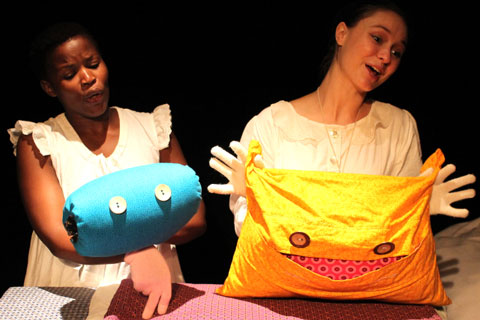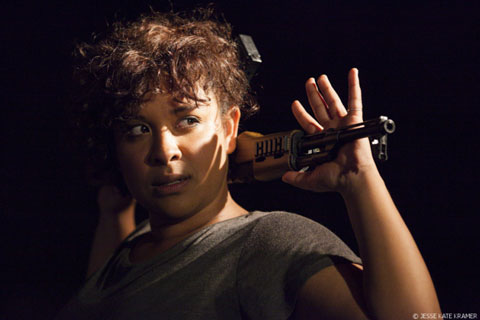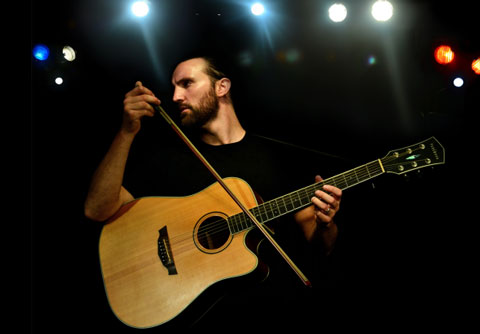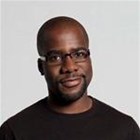Ismail Mahomed, artistic director of the National Arts Festival, chats about the inaugural Cape Town Fringe.
 Eugene Yiga: How did you first get involved in the National Arts Festival?
Eugene Yiga: How did you first get involved in the National Arts Festival?Ismail Mahomed: I first came to the Festival in the 80s. This was during the State of Emergency. Despite the repressive and politically volatile times of the eighties, I was in awe with the vibrancy of the Festival. I was also drawn by the contradiction that Grahamstown offered of hosting a festival created to celebrate British colonial legacy and here was this beast of an event on which South Africa's unique artistic voices were being built.
And what was your experience of the 40th anniversary event in Grahamstown this year?
The 40th anniversary programme offered many opportunities to celebrate, reflect and to envision the future of the Festival within the context of South Africa's cultural and political backgrounds. It certainly was a bumper edition of the Festival with many glass ceilings broken. The challenge ahead is to maintain that same level of excellence, excitement and innovation which in many ways were central to the success of this year's programme.
Why the decision to start a new festival?
The growing circuit of festivals around the country is a significant indicator of the vibrancy with which the arts are being embraced by South Africans. Whilst there are business decisions that influence the starting of a new festival, at an artistic level the newer festivals provide fertile grounds for successful productions to have extended stays, develop new audiences and help artists to network and engage with agencies that can impact on the way they continue to make their art.
Why a fringe festival in particular?
There is a large independent arts sector in South Africa that works throughout the year outside of the mainstream institutions to originate, incubate and develop new work. Fringe festivals are vital platforms for such artists. It is also at Fringe festivals where mainstream artistic directors and producers scout for new talent, emerging trends and exciting developments. Festivals in essence become a necessary bridge between mainstream institutions and independents artists working outside of those institutions.
And why Cape Town?
Again, apart from the business decisions, Cape Town is an exciting city for a fringe festival. The city has a growing arts sector which is stimulated by several small curated festivals. A fringe festival is not curated so it creates an opportunity for artists who work at each of these curated festivals to come together in a single festival to challenge, inspire and to engage each other.
Cape Town, like Grahamstown, is also a city that is constantly grappling with some of its political ghosts. Arts festivals thrive best in cities that present those kinds of contradictions because audiences take full advantage of the opportunities that artists create to immerse one's self in those complexities and to be able to walk out of it feeling enriched rather than bruised.
How is the festival bringing together various Cape Town communities?
The diverse programme selected for the inaugural Fringe will be a catalyst to attract diverse audience. While there is a high emphasis on good entertainment several of the productions also offer dynamic opportunities for discussions between artists and audiences to continue long into the night.
Partnerships with ASSITEJ and the Zabalaza Festival coupled with the Applauze Arts Initiative and the Performing Arts Network is designed to stimulate representation on the programme. At a cultural level many of these artists will forge newer partnerships at the Cape Town Fringe Festival and discover newer ways of collaborating. The arts in general will reap the benefits of that collaboration.
And how would you respond to the comment that the funds - the bulk of which are coming from the City of Cape Town - would be better spent on existing arts programmes?
Spending on a festival that will provide work and extended opportunities for small independent artists is part of the vision for a national growth plan. The Cape Town Fringe is not taking away from existing programmes but instead the Festival will be that dynamic bridge which is so desperately needed in all South African cities to narrow the gap between public funded mainstream institutions and independently producing artists working outside of those mainstream institutions.
So far the city has agreed to a three-year partnership. What are your intentions for the future of the festival?
As an inaugural festival the Cape Town Fringe is already doing what is natural to the birth of festivals in most cities across the globe. It is getting people talking about - some positively and others with a level of criticism. That dialogue is a reflection of an arts sector that is dynamic and which has people on both sides of the discussion invested in the future of the festival and the future of the city. This year's festival will be the playground on which both sides can engage each other and find ways to jointly map out the way ahead.
What obstacles do you think you need to overcome to realise the vision for a successful Cape Town Fringe?
Festivals evolve continually. Their sustainability is stimulated by reaching newer audiences, finding newer ways of expression, adapting to environmental and economic challenges and responding to political contexts in which they operate.
And how will you address these?
Through visionary courage, calculated risk taking, strategic partnerships and a passion that draws its inspiration from the artists and the audiences it intends to serve.
The first annual Cape Town Fringe Festival takes place from 25 September to 5 October. Details and full programme (PDF) at www.capetownfringe.co.za.












































 Eugene Yiga: How did you first get involved in the National Arts Festival?
Eugene Yiga: How did you first get involved in the National Arts Festival?




